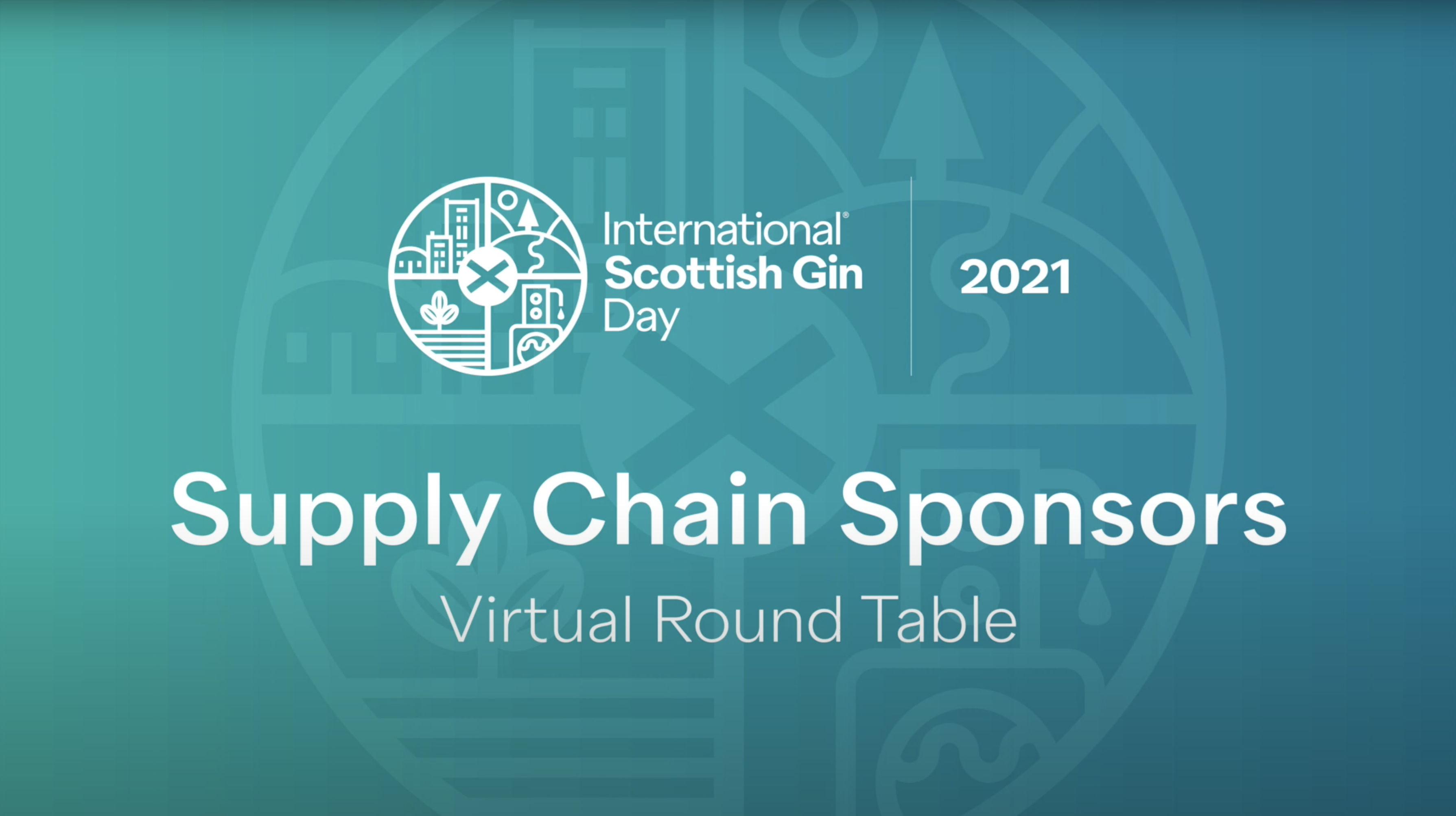
Key Businesses Debate: What Makes a Successful Supply Chain in the Scottish Gin Industry
International Scottish Gin Day is a day to celebrate all things Scottish Gin. The people, the places, the passion, the gins. The Day, conceived and created by Natalie & Martin Reid of the Gin Cooperative, is now in its third year. There is no set format for participants and events, which means there is always a diverse range of events hosted worldwide under the banner of ISGD. One such event this year was a virtual round table discussion bringing supply chain sponsors together with gin producers.
Being the lead manufacturer and supplier of bottle closures to the drinks industry, Rankin could never miss this opportunity to support the Gin Cooperative in the wider promotion and celebration of gins made in Scotland.
Hosted by Natalie & Martin Reid, the panel included our Commercial Director, Jim Rankin, accompanied by Andrew Trevvett, Sales Manager at Windmill Printing; Anthony Benton MD of Joseph Flach & Sons; Claire Logan from Vetroelite; iStill CEO, Edwin Van Eijk; Image on Glass managing director, John Henderson; and Flexi-Hex co-founder, Will Boex.
The Scottish Gin producers were represented by Shetland Distillery Company’s co-founder and business development director, Debbie Strang; Beinn an Tuirc Distillers co-founder and director, Emma Macalister Hall; Port of Leith Distillery founder and co-CEO, Ian Stirling; and Dunnet Bay Distillers co-founder, Martin Murray.
One crucial factor raised during the round table was how fast the industry has been changing and the pressure faced by its players regarding planning and timing. Jim Rankin argued the sooner the supply chain is involved in the process, the better are the results, especially considering aspects such as sustainability.
The impact of the pandemic
Jim also talked about the impacts of the pandemic on the supply chain: “It’s important to have a trustworthy and robust local supply chain. At the same time, we need to shorten it. We must help the producers to identify local resources.
We have manufacturing and logistics in the United Kingdom, and we stock for many of our customers, helping to compress lead times. We also support our customers with local teams. In Scotland, we have a technical and a commercial team, for instance. It’s important that we engage with producers on a very, very local level.”
Sustainability is both a demand and a challenge
The panel also discussed sustainability, with Jim bringing awareness that the industry is still trying to figure out its role in a more sustainable world.
“We can get caught up in this clamour to be sustainable without asking ourselves the most important question: what does sustainability mean to us and how we are able to move our business into a more sustainable area?
As closure manufacturers, we must combine sustainability and innovation with function and aesthetic beauty.
At Rankin, we have a pathway towards a more environmentally positive and sustainable future, called project Nova. It is a matrix of projects that look into all facets of our business.
We’re invested in plastics, and we’re here to ensure the long term viability of plastics by moving materials to more environmentally positive and sustainable options. Still, the priority must remain ‘fit, function and performance’, so we can’t easily and quickly change materials without going through a rigorous process of evaluation & trials, such that it guarantees performance.
Project Nova goes much further and beyond products alone. Its about who we are, what we do, our behaviours, the processes and controls we employ, and of course the materials we use.
We won’t achieve our ambitious goals overnight. It’s an ongoing and incremental process. One of our recent wins was receiving FSC accreditation for our forests & properties in Portugal, which is fantastic. This was just one of a number of critical targets in this developing journey.
We continue to reinvent and make relevant our business that has survived and thrived through six generations and we have to pass it on to future generations in better shape than it was when we inherited it.
How to strengthen the Scottish Gin industry
JIm also encouraged new producers to ask companies in the supply chain about what they have done for others during the last couple of months and how they had supported brands to achieve a sustainable future. In this sense, the Gin Cooperative had a crucial role.
With more than 80 members, the commercial membership-based business educates and inspires consumers and producers to discover and explore Scottish Gin, its people, places, and products.
They also provide a consistent and positive voice for the Scottish Gin sector while encouraging responsible alcohol consumption. That’s why Rankin fully supports the Gin Cooperative, whose actions and events are always focused on making Scottish Gins a success.
The discussion at the round table was enlightening and fun, but far from exhausting the subject. We are looking forward to the next opportunity to raise a glass and exchange ideas and aspirations with our colleagues from the Scottish Gin industry again.
Want to know more about how to make a successful supply chain? Click here and watch the full discussion we had during the International Scottish Gin Day 2021. Cheers!